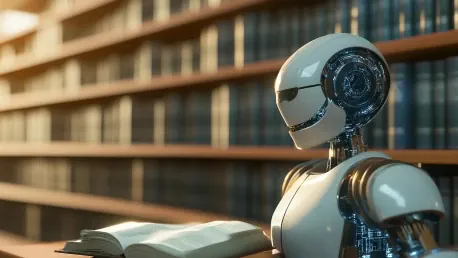Imagine an artificial intelligence system trained on a vast ocean of digital content: books, articles, music, and images. As AI technology evolves at lightning speed, questions arise about whether these models ever cross the line into illegal territory, borrowing too much from copyrighted material.
How AI Technology and Copyright Law Are Colliding
Artificial intelligence today thrives on massive datasets, often sourced from online materials that are publicly available. While these datasets are essential for developing sophisticated AI models, they raise significant concerns about copyright infringement. Ensuring that content creators’ rights remain intact has become more critical than ever, given the proliferation of AI applications across various industries. From generating creative works to powering news aggregation platforms, AI’s impact on creative industries cannot be understated.
Several high-profile legal disputes have emerged, highlighting the tension between AI innovation and copyright protection. Many authors and news organizations claim that their works have been used without proper authorization, risking the erosion of their intellectual property rights and revenue streams.
The Heart of Current Legal Disputes
The judicial consolidation of various lawsuits against OpenAI and Microsoft marks a pivotal moment in understanding AI’s influence on copyright law. These lawsuits have been brought together under the oversight of U.S. District Court Judge Sidney Stein and U.S. Magistrate Judge Ona Wang. Plaintiffs argue that OpenAI and Microsoft have used copyrighted material to train their AI models without due permission, challenging the legality of such practices.
OpenAI’s defense essentially revolves around the principles of fair use and the argument that their training data is sourced from publicly available materials. They assert that using such information is both legal and crucial for fostering innovation. This contention forms the crux of a legal debate that could set significant precedents for future AI development. An illustrative case study involves AI models trained on millions of web pages, creating complex systems capable of sophisticated tasks; however, examining whether these practices infringe upon copyright forms a critical part of the ongoing litigation.
Insights from Experts and Stakeholders
Legal experts have weighed in on these disputes, emphasizing the necessity of establishing clear guidelines for AI training to avoid infringing copyright. Some suggest that current laws need adaptation to address the complexities introduced by AI technologies. Industry insiders advocate for balancing the drive for innovation with stringent legal compliance, ensuring that AI development does not come at the expense of creators’ rights.
Affected authors and news organizations have shared anecdotes of how AI’s use of their copyrighted material has impacted them. Many lament the unauthorized usage, arguing that it diminishes the value of their work and reduces potential earnings. These personal stories underscore the emotional and financial stakes involved in this legal battle, adding depth to the broader conversation about AI and copyright infringement.
Creating a Practical Framework for AI Development
Companies seeking to develop AI models can benefit from adhering to specific legal recommendations to avoid copyright infringement. Establishing clear guidelines for obtaining and using training data can help mitigate risks. It’s essential for AI developers to consult legal professionals to ensure their methodologies comply with all relevant copyright laws.
Content creators, on their part, should be proactive in protecting their work. Utilizing copyright registration and monitoring services can help track the usage of their materials, making it easier to identify potential infringements. Adopting an awareness of fair use principles and crafting licensing agreements can create a safer environment for sharing creative content.
Some organizations have successfully integrated ethical and legal considerations into their AI development strategies, offering examples of best practices. Companies that prioritize fair use compliance and respect for intellectual property lay a robust foundation for sustainable AI innovation without compromising the rights of creators.
The consolidation of these cases has underscored the importance of determining boundaries of fair use in the digital age. Courts will now navigate the intricate relationship between existing copyright laws and emerging technologies. This balance will be paramount in advancing artificial intelligence while protecting the intellectual property of content creators.









